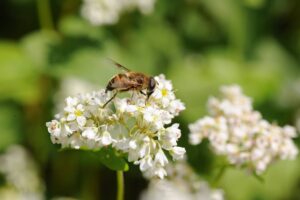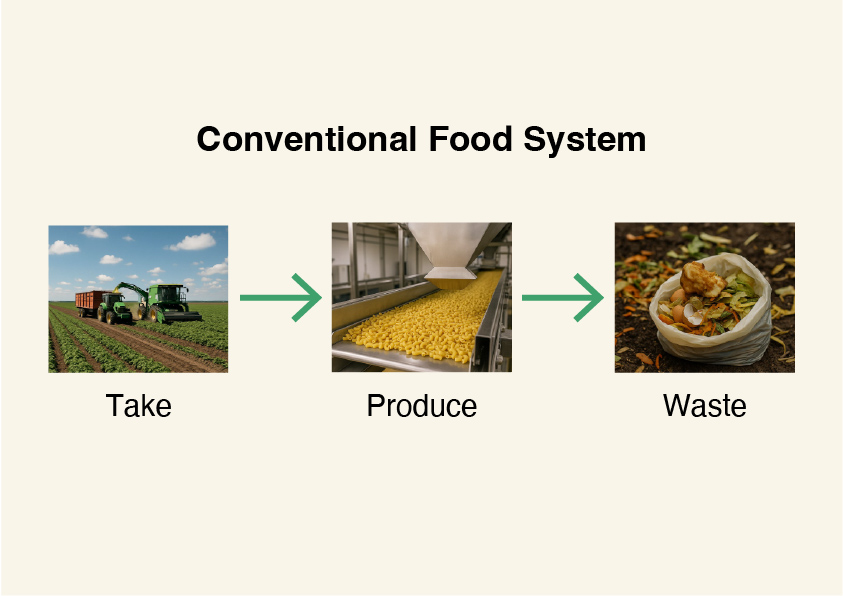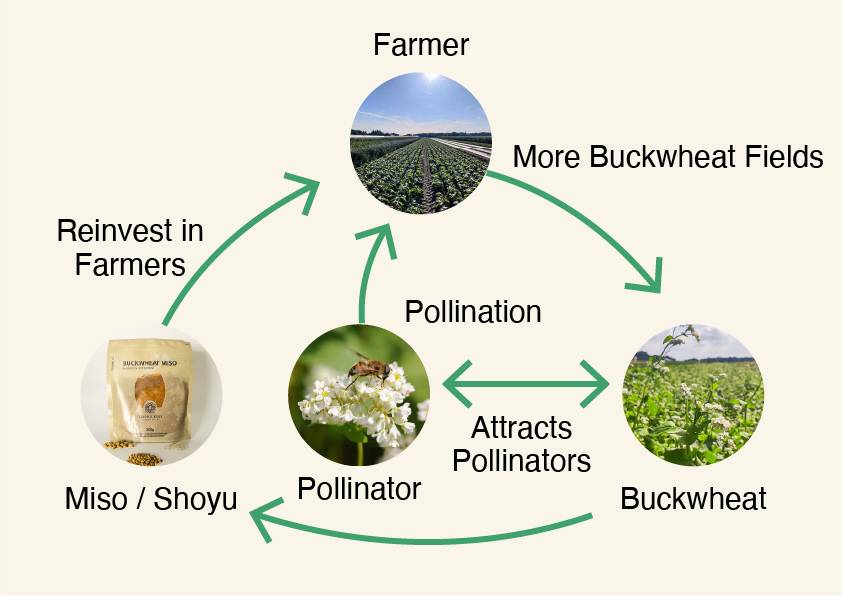NATURE
Not Waste
Fermentation reconnects us.
We believe nature is not a resource to use, but a system to be part of.
From Extraction to Regeneration: Rethinking Our Food System
 The conventional, linear food system has long followed a one-way path: take, produce, and waste. It extracts from nature without giving anything back. But nature doesn’t work this way—and neither do we.
The conventional, linear food system has long followed a one-way path: take, produce, and waste. It extracts from nature without giving anything back. But nature doesn’t work this way—and neither do we.
At Choro Koji, we are building a food ecosystem that restores, not depletes. No more taking. Let’s start giving back.
At the heart of this circular vision is buckwheat. Buckwheat flowers attract pollinators, and in return, pollinators support their growth through pollination. It’s a natural cycle of mutual support, showing us how food production can work in harmony with ecosystems.
Instead of ending with waste, our process returns value to the soil, the farmers, and the environment.
The following illustration compares the linear food system with the circular model we are striving to build.
Linear System

Circular Ecosystem

How Buckwheat Consumption Nurtures Biodiversity
Buckwheat isn’t just good for you—it’s good for the planet.
Every gram we consume helps pollinators thrive and keeps biodiversity alive.
We believe food should not only nourish people but also restore nature.
That’s why we chose buckwheat—a crop that blooms into something much bigger than itself.
Its flowers attract pollinators like bees and butterflies, contributing to vibrant, biodiverse ecosystems.
Since our founding, we’ve used over 2,450kg of buckwheat, which has supported an estimated 7,963+ pollinator interactions in Dutch farmland. (Source: The Guardian)
This is our way of giving back—not just to people, but to nature itself.
Reinvesting in Farmers: Our Circular Commitment
Here’s how Choro Koji gives back to the land and those who care for it:
We reinvest 2% of every purchase into regenerative agriculture through Land van Ons, a Dutch initiative that buys unused land and restores it to ecological health.
One of their key partners is Biesterhof, a regenerative farm growing buckwheat, creating a food forest, and protecting pollinators. Land van Ons has purchased 25 hectares of previously unused land, and is leasing it free of charge to Biesterhof for seven years to bring the soil back to life.
Choro Koji contributes to Biesterhof’s work through Land van Ons—and starting from June 2025, we’ll begin using Biesterhof-grown buckwheat in our products.
So the more you enjoy our miso and shoyu, the more we can reinvest in soil, farmers, and biodiversity. And the more buckwheat is grown, the more food is available for pollinators to thrive.
Want to support farmers and fermentation?
Every purchase helps grow buckwheat, feed pollinators, and restore soil.